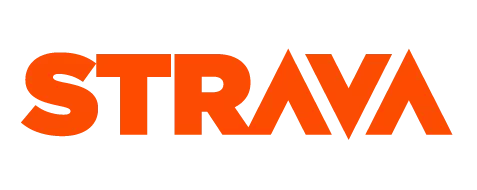How to Become a Running Coach
So, you want to be a running coach? It's a great career choice! Here's what you need to know!
Becoming a running coach is a great way to share your knowledge and help others achieve their running goals. There are many steps you need to take to become a coach, but the most important thing is to have a passion for running and be willing to share that with others.
There are a few things you should do first. In this article, we will outline the steps you can take to become a running coach.
Finding Your Niche
Finding your niche or target market is the first step in becoming a successful running coach. You need to identify what type of runners you want to coach so you you can focus on providing services and advice that matches the goals, objectives that those runners typically have and the level they are currently at.
Once you have identified your target market, it is important to create a coaching program that aligns with their specific needs. You will also need to find training and education resources to help you meet those goals.? Finally, it is important to build a client base and develop relationships with people who share your passion for running.
It's crucial to think about this from the perspective of your potential clients first and then work backward from there. You need to think about the goals, aspirations and challenges a given target market might be facing and determine whether this is a group that you would like to coach and that closely matches your own skills and objectives as a coach.
Let's take a look at some different niches you can consider. It's important to note that these are just generalizations to help you think about the type of coaching you want to do and the types of runners you want to help. Not all runners will fit neatly into one of these categories and you don't necessarily need to choose only one niche. However, going through this exercise will help you think about what type of runners you are best suited to coach. As you become more experienced as a coach you can consider coaching a more diverse range of runners as you developer your skills.
The important thing is to start by being very specific and change things up as you learn more about yourself as a coach and your clients as runners.
Recreational Runners
A recreational runner is anyone who enjoys the sport and like to improve their fitness without necessarily focusing on competition or performance.
The main goal of a recreational running coach is to help their athletes stay healthy and motivated. They do this by providing education on running form, helping to create achievable goals, and providing encouragement and support.
Since they are not focused on competition, recreational coaches typically do not require their athletes to have any previous running experience or meet any specific fitness standards.
Coaching recreational runners might be for you if you have a passion for helping others enjoy running and improve their fitness without the pressure of high performance. It is also a good option if you do not have the time or interest in working with more competitive runners.
Performance Runners
A performance runner is someone looking to improve their times and compete at a higher level. They are typically experienced runners who are looking to set personal records or qualify for races like the Boston Marathon.
The main goal of a coach working with performance runners is to help them run faster and achieve their goals. They do this by developing individualized training plans, providing education on running technique, training and nutrition, and offering motivation and support.
Since they are focused on helping runners improve their times, performance coaches typically require their athletes to have some previous running experience and meet specific fitness standards.
If you are passionate about helping runners reach their potential and achieve their goals, coaching performance runners might be for you. It is also a good option if you have the time and interest in working with more competitive runners to help them push their limits.
Elite Runners
An elite runner is someone who competes at the highest level of the sport. They are typically experienced runners who are looking to compete in national and international competition.
The main goal coaching elite runners is to help them run faster, avoid injury, maintain consistency and achieve their long term goals. Coaches can do this by developing individualized training plans, providing education on running technique, training, recovery and nutrition, and offering motivation and support.
Elite coaches only work with the most experienced and dedicated runners. As such, they typically require their athletes to have extensive previous running experience and meet specific running standards based on past performances.
You should only consider becoming an elite coach if you want to work with the most dedicated and experienced runners. This option is only for coaches who have the time and interest in working with competitive runners to get the very best results possible.
Beginner Runners
A beginner runner someone who is new to the sport of running. They are typically people who have never run before or have only run a short distance and their main goals are to have fun, meet new people and stay healthy.
The main goal of coaching beginners is to help their athletes enjoy running and improve their fitness in a consistent way that avoids any risk of injury. They do this by providing education on running technique, training, and helping tem to create challenging but achievable goals, while providing encouragement and support.
Beginner coaches typically do not require their athletes to have any previous running experience or meet any specific fitness standards.
If you want to help people discover the joys of running and get started on their fitness journey, coaching beginners might be for you. This option is also good if you want to coach part-time or if you do not have the time or interest in working with more experienced runners.
Getting Certified
Although, not 100% essential to get started with coaching it's a great place to start. You'll create a base of knowledge to make sure you can safely and efficiently start coaching your first clients with confidence.
First, you need to find the right coaching program(s). There are many options available, so it's important to find one that fits your experience and goals. You should also look for programs with experienced coaches who can help guide you on your coaching journey.
UESCA
UESCA offers two running coach certifications: the Ultrarunning Coach Certification and the Running Coach Certification. Both programs have been developed over many years and include up-to-date research and evidence-based findings.
The Ultrarunning Coach Certification is a collaboration of Jason Koop and UESCA. The program includes 20 online modules and provides up-to-date research and evidence-based findings. At the time of writing, the price for the certification is $499.
The Running Coach Certification includes 22 online modules and is the latest in research-based sports science. The price for the certification as of writing is also $499.
The choice between the two programs depends on your experience and goals. If you are just starting out, we recommend the Running Coach Certification. If you have more experience or want to specialize in ultrarunning, then the Ultrarunning Coach Certification may be a better fit.
ACE
The American Council on Exercise (ACE) offers a personal trainer certification that includes a focus on coaching. While this certification is more general, it could be valuable for learning about physiology and fitness.
The ACE certification teaches relevant skills to design unique exercise programs. The coursework is evidence-based and includes ACE's signature behavior change philosophy.
There are three options for the certification: Basic, Plus, and Advantage. At the time of writing, the price for the Basic package is $587, the Plus package is $689, and the Advantage package is $1,037.
RRCA
The Road Runners Club of Ameria (RRCA) offers two coaching certifications: Level 1 and Level 2. The Level 1 certification focuses on adult distance running (1 mile+) and youth running, shorter distances. The coursework is online or in-person and takes two days to complete. Currently, the fee for the certification is $335.
The Level 2 certification focuses on the scientific, competitive, managerial, and psychological aspects of coaching. This certification requires being an RRCA Level 1 Certified Coach for at least 12 months. The coursework is online and takes two days to complete. At the time of writing, the fee for the certification is $650.
Both certifications are valuable and can help you reach your goals as a coach. If you want to focus on adult distance running, we recommend the Level 1 certification. If you want to learn more about the science and psychology of coaching, then the Level 2 certification is a better choice.
USATF
If you plan on coaching Track & Field, you will need to get certified through the USATF Coaching Education Program. The program offers a Level 1 course that is the cornerstone of USATF Coaching Education.
The 21.5-hour live course covers events and related sports science with an emphasis on rules, fundamentals, teaching progressions, and safety and risk management. The course is offered on Zoom and requires having a current USATF membership.
At the time of writing, Individual Youth Memberships cost $25/year, Individual Adult Memberships cost $40/year, and VIP Memberships cost $150/year.
Once you have completed the Level 1 course, you will be able to apply for USATF certified coach status. This will give you access to exclusive resources, discounts, and insurance coverage.
Start Coaching
At some point you just need to start coaching.
However before jumpining in head first, it's important to create a coaching program that is tailored specifically for the runners you've chosen as your niche. This means creating specific goals and objectives for each runner, as well as developing individualized training plans based on each runner's strengths and weaknesses.
Experience in coaching real runners is as important, if not more important, than certifications.
You need to learn how to
-
Communicate: You will be working with runners of all different levels of experience, so it's important that you're able to communicate effectively. This includes being able to listen to runners, understand their needs, and give clear instructions.
-
Motivate: As a coach, it will be your job to motivate runners to reach their goals. This includes providing encouragement, setting achievable goals, and helping runners stay on track.
-
Analyze: In order to help runners improve, you need to be able to analyze their running form, identify areas of improvement, and develop specific drills to address these issues.
You also need to work through what systems and tools you might use for coaching. Something simple like emails and spreadsheets or something more advanced like a coaching platform like Training Tilt.
You'll need tools for
Communication
As a running coach, you will need to communicate with your runners on a regular basis. This can be done via email, phone, text message, or social media. You will also need to find a way to keep track of all of your conversations so you can refer back to them later.
Delivering Training Plans
Training plans are a key part of any coaching program. They help runners stay on track and make progress towards their goals. There are a number of different ways that you can deliver training plans to your runners, from simple tools like spreadsheets to more advanced tools like Training Tilt, TrainingPeaks, or FinalSurge.
Analyzing Run Training Data
In order to help runners improve, you need to be able to analyze their training data. This includes looking at things like pace, distance, heart rate, and other variables. While you can use traditional methods like Excel to do this, there are also a number of software programs that can help you better analyze data, such as GoldenCheetah, Training Tilt, and Garmin Connect.
Charging For Your Services
You may decide to charge for your services straight away or coach a few people for discounts or for free to help you develop your skills.
When starting a new business, offering lower-priced or even free services is a great way to get started, as it allows you to develop your skills and build a client base. It also gives you the opportunity to get feedback from clients so you can improve your services.
Once you've built up your skills and experience, you can start charging for your services. Before setting your rates, it's important to research what other coaches in your area are charging. You should also consider the level of experience and expertise that you have to offer.
Pricing your services too low can undercut the market and make it difficult to make a profit. Pricing your services too high can make it difficult for potential clients to justify the cost. Take your time to research the market and find a price that is fair to both you and your clients.
Marketing and Promotion
In order to market yourself as a coach, you will need to create a website or blog and write articles about coaching. You can also participate in online forums and social media platforms in order to build relationships with potential clients.
Website Content and SEO
You'll need to create a website and fill it with content about coaching runners. You can write articles, create videos, or even start a blog. It's important to make sure your website is optimized for search engines so that people can easily find you when they're searching for a coach.
As a running coach, it's important to create content that would be useful to your specific target audience. That could mean writing articles about training programs, providing tips on how to stay motivated, or even sharing your own personal story of how you overcame adversity while training for a race.
Take a look at your chosen niche and create content that would be helpful for people who are looking to improve their running. Once you've created some great content, it's time to start promoting it.
Social Media
Another great way to market yourself is through social media. You can create a Twitter, Facebook, or Instagram account and post about your coaching services. You can also use social media to connect with potential clients and build relationships.
Many runners face the problem of not knowing how to train properly or not having enough time to do so. A running coach can help these runners by providing free content on social media that covers topics such as training tips, race strategies, and injury prevention. Focus on your niche and provide valuable content that will help your target audience.
By doing so, you'll be able to build trust with potential clients and eventually convert them into paying customers.
Presence at Running Events
Having a presence at running events is a great way to market your coaching services. You can volunteer at local races, hand out business cards, or even set up a booth. This will help you get your name and face out there so that potential clients can remember you when they're looking for a coach.
One great way to market your coaching services is by wearing merch like t-shirts and caps with your brand on them to get exposure. This way, when people see you at a race or event, they'll be able to remember your name and visit your website later.
You can also give out freebies at your booth, like electrolyte drinks, protein bars, or water. This will help you stand out from other coaches and attract potential clients.
Advertising
As a running coach, it's important to have a strong online presence. This means having a website or blog that is well-optimized for search engines, as well as a strong social media presence. You can also use advertising to market your coaching services.
One great way to advertise your coaching services is through channels like Google AdWords or Facebook Ads. You can use these platforms to target potential clients who are searching for a coach online.
Another option is to partner with local running stores or gyms and have them promote your services. This will help you reach a wider audience of potential clients.
Running Clubs
Joining or starting a running club is another great way to market yourself as a coach. This can help you build relationships with potential clients, as well as get your name out there. You can also use this as an opportunity to give free clinics or talks on topics such as training, injury prevention, or even race strategy.
You can offer to write a program for an existing club or group for free so the runners can get to know you, and you can contribute to the club before asking for anything in return. This will give you a chance to build trust and show your value as a coach.
You can also offer to be a group leader at in-person running meet-ups or training runs. This will give you a chance to interact with potential clients and show them your coaching skills.
Conclusion
Becoming a running coach is a great way to start your career in Running. It's challenging and rewarding, and there are plenty of opportunities for growth. Follow these steps and you'll be on your way!












